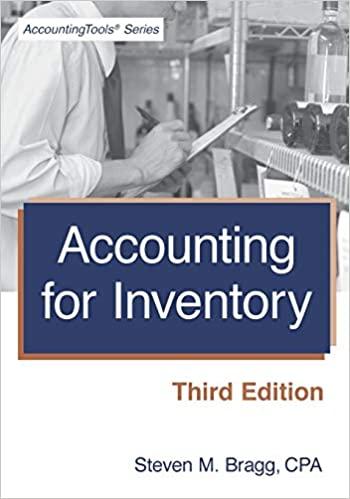Question
TAX RESEARCH MEMO The research memo must be turned in (email) by 11:59 p.m. central time on November 24, 2020 . Your research problem assignment
TAX RESEARCH MEMO
The research memo must be turned in (email) by 11:59 p.m. central time on November 24, 2020. Your research problem assignment is shown below.
NOTE: Your discussion of the tax law MUST include:
- At least one Internal Revenue Code Section
- At least one Treasury Regulation
- At least two court cases or revenue rulings. (This could be two cases, two rulings, or one case and one ruling.)
Guidelines: The memo should include a thorough discussion of the facts, the specific issues to be resolved, the conclusion, the appropriate tax authority that addresses these issues, an evaluation of this authority (i.e., how does the authority relate to your clients facts), and a summary. I will evaluate the case as if I was a tax manager at a public accounting firm, and I had given you this assignment. The case should be written with proper grammar and spelling. Each assignment should be typed or word-processed. In general, these problems should be addressed in 2 - 3 double-spaced pages. Other helpful notes for these write-ups are:
1. It may be helpful to diagram the transactions in the problem.
2. Some problems may have more than one issue that needs to be addressed.
3. Make sure that you cite primary sources of tax authority in your answer. For example, a direct cite to only your textbook would be inappropriate.
4. Make sure that your conclusion is clearly stated and supported by the discussion.
5. Twenty-five percentage points will be deducted from your grade for each day the assignment is turned in late. A partial day late counts as one full day.
6. The projects will be graded on the following criteria:
a. Writing Style
b. Grammar
c. Locating Proper Research Sources
d. Analysis of the Law to Your Facts
e. Organization of Memo
7. Your memo should have at least the following sections:
Facts
Issues
Law
Discussion
Conclusion
Research Problem 1
Rex Jones and Cynthia Martin each own a 50% interest in Jones & Martin, Inc., an S corporation that does business in Chicago, Illinois. Jones & Martin has been in the retailing business for 15 years, but because of increased competition from major discounters its financial performance has been poor over the last two years. In 2020, Jones & Martin realized $2,000,000 in discharge of indebtedness income, which is allocated 50% to each shareholder. Jones & Martin was bankrupt at that time.
Jones and Martin each have $600,000 of suspended losses for prior years from Jones & Martin. They have not had enough basis in their S corporation stock to deduct the losses on their individual tax returns. Jones & Martin also had an operating loss (before the discharge of indebtedness income) of $800,000 for 2020.
On Jones and Martins tax returns for 2020, each increased their basis in their S corporation stock by $1,000,000 for their share of the cancellation of debt (COD) income, and then used the increased basis to deduct the $600,000 of suspended losses and $400,000 of 2020 losses on their returns.
The IRS has audited the returns of both Jones and Martin and has determined that a basis increase is not allowable for the COD income, and that therefore the losses deducted of $1,000,000 on the 2020 returns should be disallowed.
Jones & Martin has retained your firm to investigate this issue and advise as to the proper tax consequences for Jones, Martin, and the S corporation. Jones, Martin, and the S corporation all report on the calendar year for tax purposes. Write a memorandum to your supervisor explaining your recommendations.
Step by Step Solution
There are 3 Steps involved in it
Step: 1

Get Instant Access to Expert-Tailored Solutions
See step-by-step solutions with expert insights and AI powered tools for academic success
Step: 2

Step: 3

Ace Your Homework with AI
Get the answers you need in no time with our AI-driven, step-by-step assistance
Get Started


